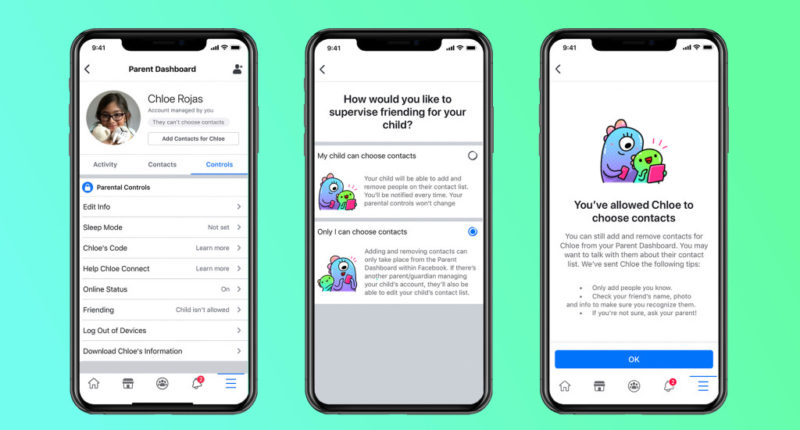Facebook has announced the launch of Messenger Kids across 70 new countries and has also rolled out new features on the app. The newly introduced features will relax parental control and facilitate the growth of contacts. The launch comes at a time when the coronavirus pandemic has forced people to stay indoors, increasing their need to socially communicate with each other, for both adults and children alike.
The app, which was first launched in 2017 in the United States, is a special version of Facebook’s messaging app designed for users below the age of 13. It provides messaging and video-chatting services within a parent-controlled space.
Initially the app was more of a stripped down version of Messenger with additional parental controls. Other differences included the absence of ads. Facebook also ensured that the data from messaging was not given out to advertisers. But what needed improvement was its restricted nature.
The app, until now, had very strict controls making it quite hard for children to connect with new contacts. The newly introduced features are aimed at relaxing parental controls, making it easy for users to build contacts.
Online Safety becomes more important when young users are involved. The advancements within the app have been developed with the youth advisors- an advisory group made up of child development, media and online safety experts.
The first of these features is Supervised Friending which allows parents to enable children to accept, decline, add or remove contacts. However, keeping supervision in mind, parents can still override contact approvals from the parent’s dashboard. The feature is now live in the U.S and will eventually be rolled out to other countries.
Next is focussed on group interactions through the app. Parents can now approve another adult such as a teacher or sports coach, allowing them to add their ward to other groups on the app. The approved adult can only connect those children whose parents have granted them the same approval. Parents have control over the list of approved adults through the dashboard. Once added to a group, children can talk to each other individually. Users may also leave groups at their convenience. The feature is available for users in U.S and is expected to be live for more countries in the coming weeks.
Next, advancements have been made to improve the reach and increase the scope for connectivity. Parents in the U.S, Canada and Latin America can now make the child’s name and profile photo visible to relevant contacts. This includes friends of the child’s contacts and parents.
While the supervision has been considerably relaxed, parents remain in control. All aspects of the app can be looked over from the parental dashboard and information of the children can be downloaded anytime.
Back in February, the app had introduced new features on the app that gave parents more control. This gave parents and overview of who the children were contacting. Parents could also determine whether the exchange was over text or video call. In addition, parents could view the list of blocked and unblocked users.
The Tech Portal is published by Blue Box Media Private Limited. Our investors have no influence over our reporting. Read our full Ownership and Funding Disclosure →






